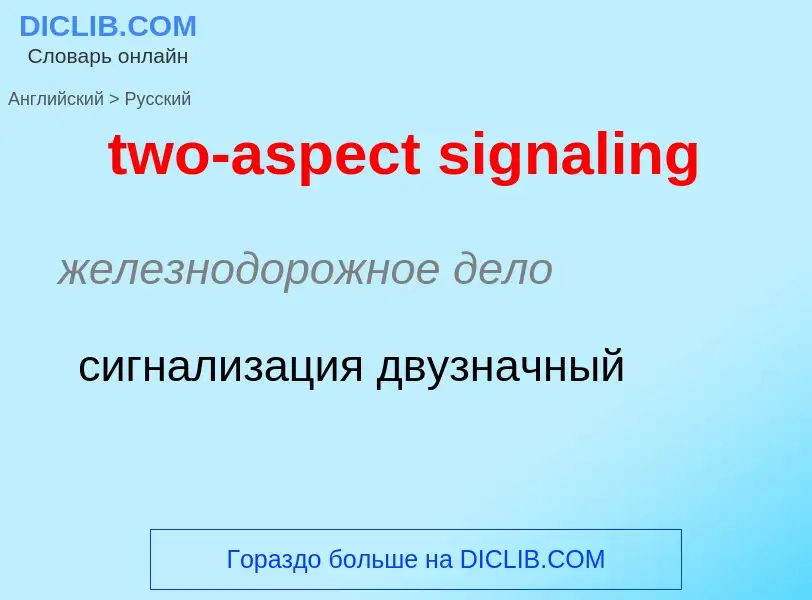ترجمة وتحليل الكلمات عن طريق الذكاء الاصطناعي ChatGPT
في هذه الصفحة يمكنك الحصول على تحليل مفصل لكلمة أو عبارة باستخدام أفضل تقنيات الذكاء الاصطناعي المتوفرة اليوم:
- كيف يتم استخدام الكلمة في اللغة
- تردد الكلمة
- ما إذا كانت الكلمة تستخدم في كثير من الأحيان في اللغة المنطوقة أو المكتوبة
- خيارات الترجمة إلى الروسية أو الإسبانية، على التوالي
- أمثلة على استخدام الكلمة (عدة عبارات مع الترجمة)
- أصل الكلمة
two-aspect signaling - ترجمة إلى الروسية
железнодорожное дело
сигнализация двузначный
железнодорожное дело
путевая блокировка
تعريف
ويكيبيديا
In linguistics, aspect is a grammatical category that expresses how an action, event, or state, as denoted by a verb, extends over time. Perfective aspect is used in referring to an event conceived as bounded and unitary, without reference to any flow of time during ("I helped him"). Imperfective aspect is used for situations conceived as existing continuously or repetitively as time flows ("I was helping him"; "I used to help people").
Further distinctions can be made, for example, to distinguish states and ongoing actions (continuous and progressive aspects) from repetitive actions (habitual aspect).
Certain aspectual distinctions express a relation between the time of the event and the time of reference. This is the case with the perfect aspect, which indicates that an event occurred prior to (but has continuing relevance at) the time of reference: "I have eaten"; "I had eaten"; "I will have eaten".
Different languages make different grammatical aspectual distinctions; some (such as Standard German; see below) do not make any. The marking of aspect is often conflated with the marking of tense and mood (see tense–aspect–mood). Aspectual distinctions may be restricted to certain tenses: in Latin and the Romance languages, for example, the perfective–imperfective distinction is marked in the past tense, by the division between preterites and imperfects. Explicit consideration of aspect as a category first arose out of study of the Slavic languages; here verbs often occur in pairs, with two related verbs being used respectively for imperfective and perfective meanings.
The concept of grammatical aspect should not be confused with perfect and imperfect verb forms; the meanings of the latter terms are somewhat different, and in some languages, the common names used for verb forms may not follow the actual aspects precisely.


![Vertical colour light signal on the [[Enshū Railway Line]], Japan Vertical colour light signal on the [[Enshū Railway Line]], Japan](https://commons.wikimedia.org/wiki/Special:FilePath/Distant signal Hamamatsu.jpg?width=200)
![Traditional mechanical signals on display at a railway station in [[Steinfurt]], Germany Traditional mechanical signals on display at a railway station in [[Steinfurt]], Germany](https://commons.wikimedia.org/wiki/Special:FilePath/Railway signal set exhibited in Steinfurt.jpg?width=200)



